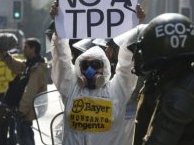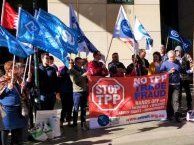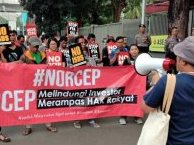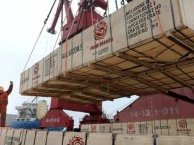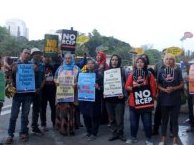
Asian countries have signed almost 2000 international investment agreements, most of which include the investor-state dispute settlement (ISDS) mechanism that gives foreign investors the right to bypass national courts and resort to a parallel system of justice specifically made for them.
The Association of South-East Asian Nations or ASEAN (formed of Brunei, Burma, Cambodia, Indonesia, Laos, Malaysia, Philippines, Singapore, Thailand, Vietnam) also provides investor protection under the ASEAN Comprehensive Investment Agreement which was adopted in 2009.
The Comprehensive and Progressive Agreement for Trans-Pacific Partnership (CPTPP or TPP for short) includes ISDS provisions with a carve-out for tobacco control measures.
TPP was signed on 7 March 2018 between 11 Pacific Rim countries: Australia, Brunei, Canada, Chile, Japan, Malaysia, Mexico, New Zealand, Peru, Singapore and Vietnam. It went into force on 30 December 2018 among the members who have ratified it. The US withdrew from it in January 2017.
The Regional Comprehensive Economic Partnership (RCEP) is a proposed mega regional trade deal. It is currently being negotiated between the Asian states of Brunei, Cambodia, China, Indonesia, Japan, Laos, Malaysia, Myanmar, the Philippines, Singapore, South Korea, Thailand and Vietnam with Australia and New Zealand. India pulled out of RCEP in December 2019.
RCEP originally included ISDS, but following opposition from civil society groups and some governments, negotiators agreed to exclude it in September 2019. However the negotiating states said they will look into it again at a later stage and assess whether or not to include it.
India has been the most targeted country in the region, with 25 known disputes - the majority of which were initiated by West European countries. Turkey has been the most frequent home state for investors, with 35 cases.
In July 2019, Pakistan was ordered to pay over US$5 billion to Chilean and Canadian investors (Antofagasta and Barrick) which had brought an ISDS claim against the country using the Australia-Pakistan bilateral investment treaty. The case involved a gold and copper mine, for which an exploration permit had been denied. The mining companies had only invested about US$200 million.
Several governments in the region have said they would reform the mechanism. At the end of 2014, Sri Lanka announced its intention to move away from traditional models of BIT. It cited the thin relationship between BITs and foreign direct investment, past ISDS disputes and the tendency for BITs to constrain domestic policy space as reasons. Sri Lanka favours the enactment of appropriate domestic legislation to protect foreign investment.
In early 2014, Indonesia announced that it would terminate 67 of its BITs. Former president Yudhoyono argued that he did not want multinational companies to pressure developing countries. 21 BITs were terminated in 2015. Indonesia has drafted a new model of BIT, but it hasn’t been adopted yet.
In December 2015, India released a revised model BIT which, for instance, requires investors to exhaust domestic remedies (Indian courts) before turning to international arbitration and leaves out “fair and equitable treatment” provisions. Consequently India sent notices to 58 countries terminating or not renewing BITs that had expired. In January 2020, it signed a BIT with Brazil that excludes ISDS and favours dispute prevention as well as state-to-state dispute settlement.
(April 2020)
